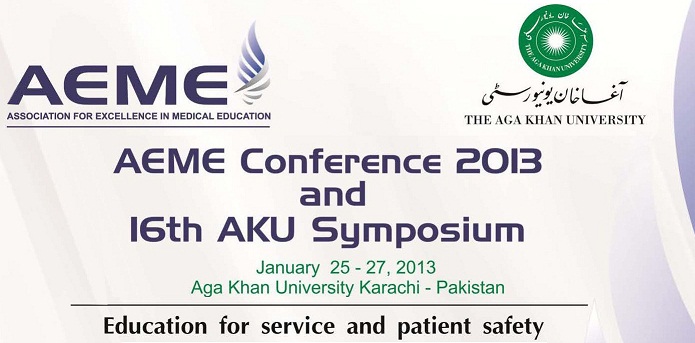Day 1 : Oral Presentations (Theme: Learning Environment)
Academic misconduct among students in medical colleges of Karachi
Location
Lecture Hall 3
Start Date
26-1-2013 3:30 PM
Abstract
Objective: To determine the trend of academic misconduct in our medical undergraduate students. Material and methods: This cross sectional study was conducted at three constituent medical colleges of Dow University of Health Sciences, Karachi, Pakistan. The students were evaluated by giving a self reported questionnaire containing 10 questions assessing their educational dishonesty and cheating behaviors. Results: A total of 274 students from different years completed the questionnaire. Mean age was 21.48 ± 1.89 years. Most of the students were in 4th year (n=86; 31.3%). There were 182 (66.5%) females and 92 (33.5%) males. Majority of the students (n=155; 55.1%) accepted that they have cheated at least once. There was no significant difference regarding acceptance of cheating among different years of study (p=0.236) however females were found to accept cheating more as compared to males (p=0.036). First year students were found more to copy answers from a friend during an exam (p=0.048) and also seek help from teachers during OSCE (p=0.01). Conclusion: A large number of medical students in our institute admitted cheating. We need to improve our educational system and strict disciplinary action should be taken against those who are found guilty.
Academic misconduct among students in medical colleges of Karachi
Lecture Hall 3
Objective: To determine the trend of academic misconduct in our medical undergraduate students. Material and methods: This cross sectional study was conducted at three constituent medical colleges of Dow University of Health Sciences, Karachi, Pakistan. The students were evaluated by giving a self reported questionnaire containing 10 questions assessing their educational dishonesty and cheating behaviors. Results: A total of 274 students from different years completed the questionnaire. Mean age was 21.48 ± 1.89 years. Most of the students were in 4th year (n=86; 31.3%). There were 182 (66.5%) females and 92 (33.5%) males. Majority of the students (n=155; 55.1%) accepted that they have cheated at least once. There was no significant difference regarding acceptance of cheating among different years of study (p=0.236) however females were found to accept cheating more as compared to males (p=0.036). First year students were found more to copy answers from a friend during an exam (p=0.048) and also seek help from teachers during OSCE (p=0.01). Conclusion: A large number of medical students in our institute admitted cheating. We need to improve our educational system and strict disciplinary action should be taken against those who are found guilty.

